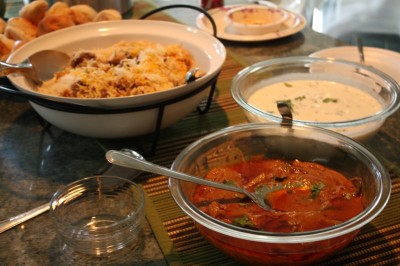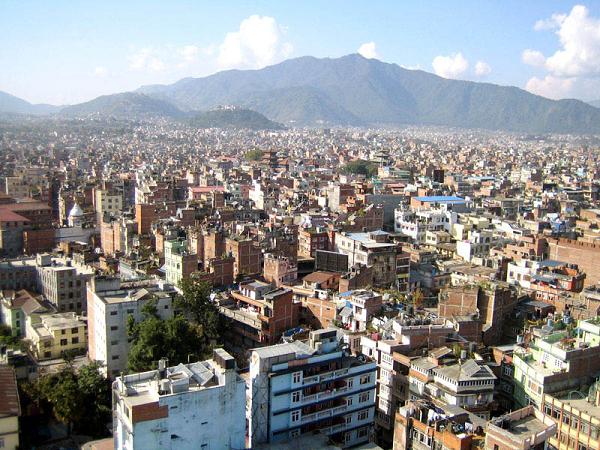Ramadan is the ninth month in the Muslim calendar 
and is considered especially holy for several reasons. Koran, the holy book, was first revealed to prophet Muhammed during the last ten days of this month.
According to the Koran, the gates of heaven are open, the gates of hell are closed, and the devils are chained up in hell during Ramadan. Since the devils are locked away, it’s easier to do good in this month, thus, dedicated Muslims are expected to donate to a charity or offer their time to help the poor, for example. Every year, the UK holds campaigns to promote safe ways of donating to charities in order to avoid scams and fake charities during Ramadan.
Most people know Ramadan best for the tradition of fasting. Fasting during Ramadan is one of the Five Pillars, or fundamental duties, of Islam. It is common to fast during the daylight hours, although there is sometimes confusion around the beginning and the end of each daily fast. For this year’s Ramadan, you can find an accurate time table for each UK city, here.
Read more.. »
guest |
January 24th, 2013
Today a part of the Muslim world celebrates Milad un Nabi (or Mawlid), the birthday of the Muslim prophet Muhammed.
This celebration, 4th of February, is slightly controversial because some Muslims don’t believe that celebrating birthdays is necessary, or even permissible. Despite the divided opinions, however, the majority of Muslims agree that the birth of Muhammed was the most significant event in Islamic history. Thus, those who celebrate it do so with great enthusiasm.
Saudi-Arabia is the only Muslim country where Milad un Nabi is not an official public holiday. In others, Milad un Nabi is sometimes celebrated in a carnival manner. Streets and mosques are decorated, parents tell their children stories about different aspects of the prophet’s life, and many people donate money, clothes, and food to charity. Milad un Nabi is also celebrated in countries such as India, Indonesia, Russia,Canada, as well as here in the UK.

guest |
November 20th, 2012
Today is Universal Children’s Day, a day to remind people across the globe of the rights and welfare of children.

Children's Day highlights the importance of welfare.
The day was first established in 1954 by the General Assembly of the UN as a response to child labour. The day highlights the inhumane aspects of child labour: the long hours, dangerous work conditions, and denial of education.
In most countries, the situation of child labourers has improved drastically since 1954, but there are still over 215 million child labourers around the world today. The UN is worried about the current trends because it seems that the number of child labourers is on the rise in poorer countries. The UN has therefore declared to eliminate child labour by 2020. This declaration fits into the Millennium Development Goals (MDGs), which all have a target date in 2015. Although the MDGs are for all human kind, they are primarily about children.
“We were all children once,” is the message from the secretary general on Universal Children’s Day. “We all share the desire for the well-being of our children, which has always been and will continue to be the most universally cherished aspiration of humankind.”
Happy Universal Children’s Day everyone!
Read more:
World Day Against Child Labour – June 12th
guest |
October 26th, 2012
Today is the start of a four-day Muslim festival, Eid-ul-Adha.

Eid-ul-Adha is also known as Feast of the Sacrifice
Eid-ul-Adha is the second most important festival in the Muslim calendar. It is a public holiday in Muslim countries, but not a public holiday in the UK. Most Muslims living in the UK are likely to take one or more days of annual leave at this time.
Eid-ul-Adha commemorates Ibrahim’s will to sacrifice his son when God ordered him to. The story goes that Allah ordered Ibrahim to sacrifice his youngest son as an act of obedience. The devil then appeared to Ibrahim telling him to disobey Allah. Ibrahim ignored the devil. When he was about the kill his son, Allah stopped him and gave him a lamb to sacrifice instead.
This story is also found in the Jewish Torah and in the Old Testament.
Today, Muslims around the world sacrifice a sheep or a goat as a reminder of Ibrahim’s obedience. It is common to sacrifice the sheep at home, but in the UK the animal must be killed in the slaughterhouse.
Eid-ul-Adha is always a great feast. One of the most important things about the festival is sharing. The lamb meat is usually shared among family, friends, and the poor. Helping the less fortunate is also very important during the festival, and many Muslims donate money to charities during Eid.
Eid-ul-Adha also marks the end of the annual Hajj pilgrimage to Mecca in Saudi-Arabia.
Happy Eid Everyone!
guest |
October 15th, 2012
It is estimated that 60% of chronically hungry people are women and girls. Today is International Day of Rural Women, a day that recognizes the vital role of rural women, including indigenous women, in enhancing agricultural and rural development, improving food security and eradicating rural poverty.

60% of chronically hungry people are women.
The day is purposefully held a day before World Food Day in order to highlight the role rural women play in food production.
The International Day of Rural Women was first observed at a significant time in October 2008. 2006, 2007, and 2008 were the years of the global food crisis when prices of staple foods rose dramatically around the world. Although prices declined slightly right afterwards they spiked again in 2010 and have been high since. UN Women Watch writes that food prices are “likely to remain high and volatile over the next decade.”
Poor rural households feel the global crises the hardest. The poorer the household the more its members have to change the way they live to cope with the crises.
Read more.. »
guest |
October 1st, 2012
In 2008, for the first time in history, more than half of the world’s population was living in cities.

Today more than 50% of the world's inhabitants live in cities.
Today is World Habitat Day, and this year’s theme is Changing Cities, Building Opportunities.
World Habitat Day was first observed in 1986. The purpose of this day is to highlight the role of shelter as a basic human right, and reflect on the state of our cities and towns around the world. This year’s urban theme was chosen because cities are engines of growth, and across the globe more and more people are moving into cities in the hope of a better future. According to research done by the Massachusetts Institute of Technology cities make up only 2% of the world’s surface, but they house more than 50% of the world’s population, consume 70% of the world’s energy, and are responsible for the 80% of the world’s carbon footprint. Research from Yale predicts that by 2030 10% of the world’s surface could be urban, most of this expansion happening in Asia…
Read more.. »
Yom Kippur is a Jewish Festival.

Yom Kippur in Israel.
Yom Kippur is the most solemn day in the Jewish calendar. It means Day of Atonement and Jewish people fast for 25 hours. It is a time when Jews can make up for the wrongs of the past year and make a firm commitment to not do the same bad thing or things again. In order to apologise to God one must pray, feel remorse, and donate to charity.
The most important part of Yom Kippur is the time spent in the synagogue. Even Jews who are not particularly religious will want to attend synagogue on Yom Kippur, the only day of the year with five services. In the Yom Kippur section of the Torah the word ‘soul’ appears five times.
The Jewish believe that on Yom Kippur God seals the verdict of each person’s fate for the upcoming year.
Yom Kippur is strictly a day of rest. So strictly, in fact, that the transportation minister of Tel Aviv has threatened to withdraw funding from the city’s public bikes if they are not closed down for Yom Kippur.
Yom Kippur falls each year on the 10th day of the Jewish month of Tishrei, which is 9 days after the first day of Rosh Hashanah. In the Gregorian calendar the earliest date on which Yom Kippur can fall is September 14, which happened in 1899 and will happen again in 2013. This year Yom Kippur takes place on September 25th and 26th.
Find out more about Yom Kippur.
Also in September:
UN International Literacy Day – 8th
International Day of Democracy – 15th
International Ozone Day – 16th
International Day of Peace – 21st
UN International Day of Languages – 26th
World Tourism Day – 27th
Rosh Hashana: Jewish New Year – 28th
‘Eid-ul-Fitr’ celebrates the end of the Muslim period of fasting, known as Ramadan.

It's forbidden to fast on Eid ul-Fitr.
At the end of the month, once fasting has been completed, a big celebration takes place known as ‘Eid-ul-Fitr’, the Festival of the Breaking of the Fast. During this celebration Muslims dress in their finest clothes, give gifts to children and spend time with their friends and family. At Eid it is obligatory to give a set amount of money to charity to be used to help poor people buy new clothes and food so they too can celebrate.
Read more.. »
guest |
August 14th, 2012
Laylat al-Qadr is also known as the Night of Power or the Night of Destiny.

Night of a Thousand Months
It is a very important night in the Muslim calendar as it is said to be the night Allah revealed the first verses of the Quran to prophet Muhammad. Muhammad received the first revelations through the Archangel Gabriel. The revelations continued for two decades throughout Muhammad’s life and together they came to form the Quran. Fittingly, the word Quran, in English, means ‘recitation.’
There is some controversy over the exact date for Laylat al-Qadr but the night is usually celebrated on the 27th of Ramadan. The last ten days of Ramadan are most important and it is likely that the true night for Lailat al-Qadr falls on any of the odd nights. During the last ten days charity work is likely to increase among Muslims. People want to make sure they have given enough during the holy month.
This night marks the beginning of Muhammad’s mission, and Muslims, therefore, regard it as the most important night in history. The Quran says that this night is better than a thousand months (that’s 83.3 years in modern terms)…
Read more.. »
Today’s date marks the martyrdom of Guru Arjan Dev, the founder of the Sikh faith. Although many of us encounter Sikhism daily in the multicultural United Kingdom street scene, only a few know how Sikhism came to be. Today’s date is the perfect day to learn about it.

Guru Arjan Dev
Guru Arjan Dev was born in 1953. He believed that the meaning of life, and religion, was simply to live in this world and cope with everyday problems. One of his most famous quotes is “My faith is for the people of all castes and all creeds from whichever direction they come and to whichever direction they bow.” He announced this after creating the Sikhs their first central place of worship. The place for worship became known as the Golden Temple, although it was controversial in many ways. Guru Arjan Dev believed that humility is a great virtue, thus, he built the temple very low rather than tall and close to the sky as was the custom. Whats more, he ordered the temple to have entrances on all four sides. This was because Muslims believe God’s house is in the West, whereas Hindu’s believe it is in the East, and Guru Arjan Dev wanted his faith to accommodate everyone. To help raise money for the Golden Temple Guru Arjan Dev declared that Sikhs must donate 1/10 of their earnings to charity. This is still an important part of the Sikh fate today.
Read more.. »












 Hello, I'm Deborah Swallow and, for the last fifteen years, I've worked in over thirty countries addressing the complexities of people working internationally across multiple cultures, so individuals and organisations alike can gain an authentic competitive edge and win in international markets.
Hello, I'm Deborah Swallow and, for the last fifteen years, I've worked in over thirty countries addressing the complexities of people working internationally across multiple cultures, so individuals and organisations alike can gain an authentic competitive edge and win in international markets. 